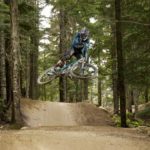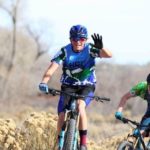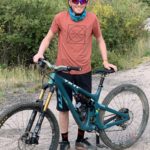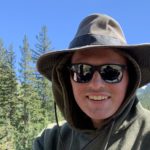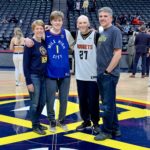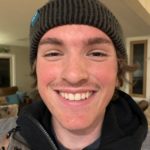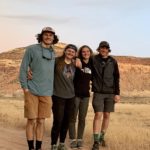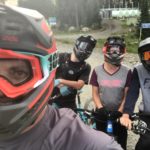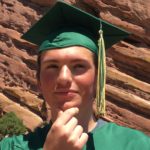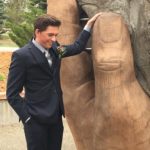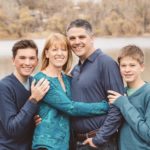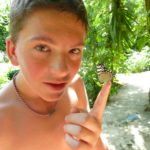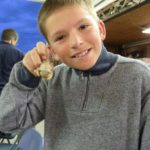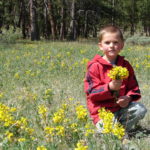The Sam Schneider Legacy
In support of Sam’s vision, we have created The Sam Schneider Legacy. Our mission is to raise funds for Ewing sarcoma research, raise awareness of pediatric cancer, and tell Sam's story.
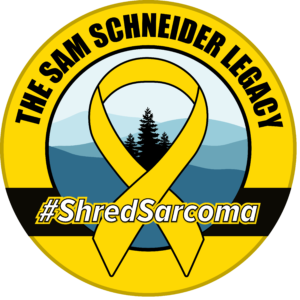
Sam's Story
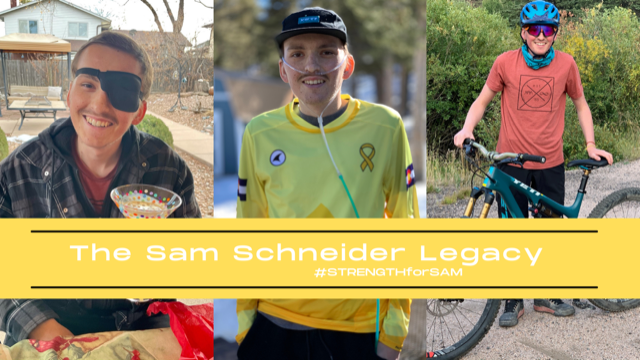
At 19 years old, Sam Schneider was an avid mountain biker who was just kicking off his collegiate career at Fort Lewis College. In late November of 2019, he began having pain in his neck and hip but he thought it was a result of a few very active days of skiing and playing basketball. After several visits to the doctor's office they decided to X-ray a lump on his arm. He didn't worry much about it since his primary care doctor said the lump was from overuse and wasn't causing his pain, but it was quickly determined to be cancer.
Sam came back home right away and was admitted to Children's Hospital Colorado. A biopsy of the lesion on his forearm determined that he had metastatic Ewing sarcoma. The cancer had spread to his vertebrae, pelvis, liver, and bone marrow. He began chemotherapy on December 21st and received 49 days of chemotherapy and 31 radiation treatments over the next 8 months. In August of 2020, Sam was given an “all clear” scan test result and we rejoiced. Unfortunately, after a short respite from the battle, Sam’s cancer returned in October, and he was told that his cancer could not be cured due to its aggressive return and growth. He then began palliative chemotherapy and radiation to slow the growth of his tumors and alleviate pain.
Throughout Sam’s treatment, he refused to give up or give in to feeling sorry for himself. Instead, he was the epitome of bravery, love, and perseverance. He met every appointment and clinic visit with a smile that took over the room and improved everyone’s day. He embraced his battle as he did his life, with positivity and kindness for others.

Sam created Sam's Bucket List for our family to enjoy with him. Not only did Sam want us to make the most of his remaining days, but he also wanted to help others so he spent his final months working on key Ewing sarcoma awareness projects.
Sam passed away on February 16, 2021, in the comfort of his home and in the arms of his family. He is deeply missed, but we honor his memory by raising awareness of Ewing sarcoma, hoping to enable earlier detection for others, as his cancer was discovered only after it had become metastatic, a common issue for Ewing’s patients.
To date we have raised over $281,000 for lifesaving childhood cancer research. Please consider making a contribution to the Sam Schneider Legacy so that his fight continues to make a difference.
Current Funding
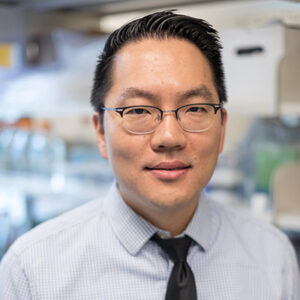 The Sam Schneider Legacy is supporting a portion of the almost $1 million grant awarded to Dr. John Lee, a CureSearch Acceleration Initiative Awardee at the David Geffen School of Medicine at the University of California, Los Angeles. Dr. Lee is working on a new targeted immune-based treatment for advanced Ewing sarcoma.
The Sam Schneider Legacy is supporting a portion of the almost $1 million grant awarded to Dr. John Lee, a CureSearch Acceleration Initiative Awardee at the David Geffen School of Medicine at the University of California, Los Angeles. Dr. Lee is working on a new targeted immune-based treatment for advanced Ewing sarcoma.
Dr. Lee has already developed a chimeric antigen receptor (CAR) T cell therapy against a cell surface protein known as STEAP1. STEAP1 is present in >90% of Ewing sarcoma (ES) tumors and is highly expressed on the surface of cancer cells, with limited expression in normal tissues. Additionally, it is implicated in cancer proliferation and invasion, making it an ideal candidate for immunotherapy in ES. Dr. Lee’s STEAP1 CAR T cells have shown promising initial results in ES models.
In his CureSearch-funded work, Dr. Lee proposes to further increase the cancer killing ability of STEAP1 CAR T cells by engineering them to secrete a molecule called interleukin-18 (IL-18). IL-18 is a proinflammatory cytokine that broadens anti-tumor immunity by enhancing the killing activity of CAR T cells and bridging the gap between innate and adaptive immune responses. By armoring STEAP1 CAR T cells with IL-18, Dr. Lee hopes to create a fourth generation of CAR T cells that overcome common barriers to utilizing CAR T cell therapy in solid tumors.
Dr. Lee will test the effectiveness and safety of his IL-18 armored STEAP1 CAR T cells in newly created models of ES that more closely resemble the advanced disease found in children. He hopes that these findings can be rapidly translated into a first-in-human clinical trial to evaluate this promising CAR T cell therapy in children with advanced ES, potentially bringing a new treatment option to the children who need it the most.



